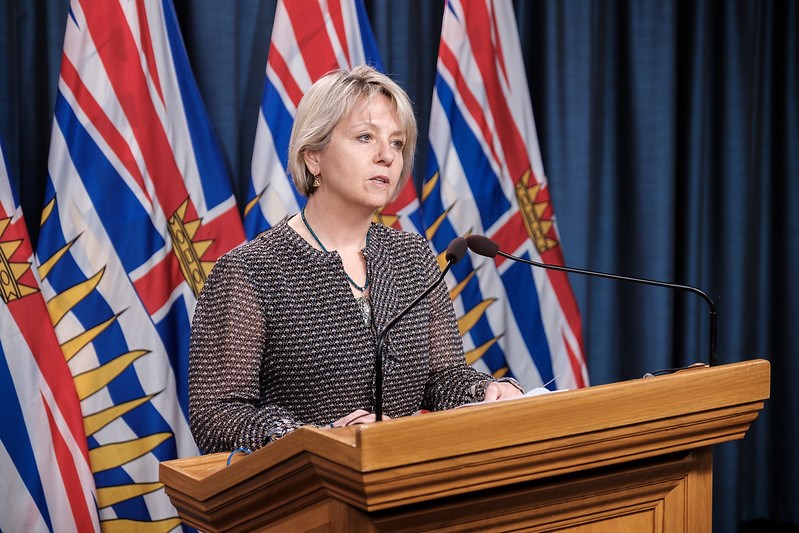The number of people actively battling what the province calls "variants of concern" has risen dramatically since the start of March, when there were 158 known cases.
A lab sequencing issue meant no new variant data was available on March 17, but the B.C. government's data from yesterday shows that the total number of these cases has risen more than 530%, to 996, compared with March 1.
So far in B.C., none of the people infected with a mutant strain of the virus has died, while 130 people are actively battling infections, and 886 people are considered recovered because they have had two negative tests.
The B.1.1.7 variant, first discovered in the U.K. is the most widely spread variant in the province, as there are 921 cases. The remaining variants include 41 cases of the B.1.351 strain first discovered in South Africa, and 34 cases of the P.1. variant first discovered in Brazil.
B.C. health officials who have found variant cases did so by retesting samples previously reported as being the main COVID-19 strain. Sometimes the retesting of previously tested samples have gone back a few months, provincial health officer Bonnie Henry said earlier this week.
The spread of all strains of COVID-19 has shown to be challenging to quell.
New infections have continued to be around 500 per day. Between March 16 and March 17, health officials found 498 new cases, for a total of 89,427 since the first case was discovered in late January, 2020. Of those, 83,083 have recovered.
The vast majority of the 4,851 people actively battling infections have been told to self-isolate, although 281 people are in hospital, with 83 of those in intensive care units. The number of those hospitalized is only up by one from yesterday, but that still puts it at a level not seen since February 2.
There were four deaths in the past day, for a total of 1,411.
B.C.'s vaccination campaign has been stepping up, with a record 19,600 more people vaccinated in the past day. Another 23 people received needed second doses. This pace for vaccinations still needs to ramp up substantially in order for all eligible British Columbians to be vaccinated by the end of July.
In total, B.C. has provided 444,140 doses of vaccine to 357,047 people, with 87,093 individuals having had second doses.
Here is the breakdown of where the 498 newly infected people reside, by health region:
• 128 in Vancouver Coastal Health (25.7%);
• 291 in Fraser Health (58.4%);
• 12 in Island Health (2.4%);
• 31 in Interior Health (6.2%); and
• 36 in Northern Health (7.2%).
No new outbreaks have been detected at seniors' homes, and no outbreaks at those homes have been declared over.
That means, the Vancouver Coastal Health, Island Health and Northern Health regions have no outbreaks at seniors' homes.
The four active outbreaks at seniors' living facilities in Fraser Health are:
• Fleetwood Place in Surrey;
• Holmberg House Hospice in Abbotsford;
• Oceana PARC in White Rock, and
• Revera Sunwood in Maple Ridge.
The two active outbreaks at seniors' living facilities in Interior Health are at the Florentine in Merritt, and at Cottonwoods Care Centre in Kelowna.
There are also eight active COVID-19 outbreaks at B.C. hospitals, thanks to one new outbreak at UBC Hospital.
The hospital outbreaks at Dawson Creek and District Hospital in Dawson Creek, and Royal Columbian Hospital in New Westminster are no longer listed as active.
The eight hospitals in B.C. that have outbreaks are:
• Chilliwack General Hospital in Chilliwack;
• Eagle Ridge Hospital in Port Moody;
• Kelowna General Hospital in Kelowna;
• Mission Memorial Hospital in Mission;
• Ridge Meadows Hospital in Maple Ridge;
• Surrey Memorial Hospital in Surrey;
• UBC Hospital, and
• Vancouver General Hospital in Vancouver.



